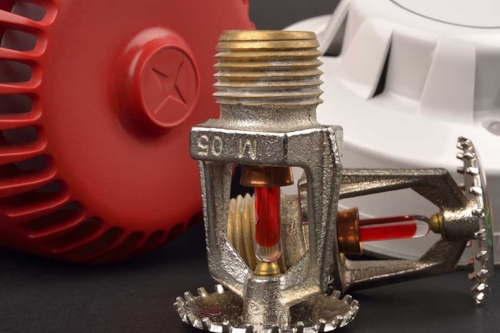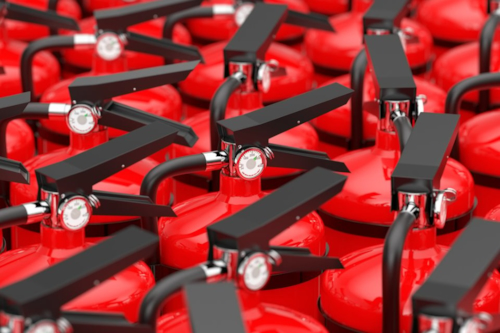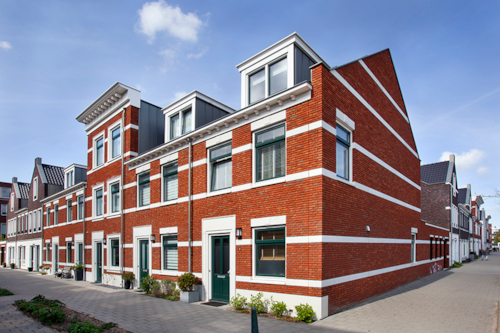
K21047 Wireless Silent Alarm Systems
Receive a quote tailored to your needs
What does a wireless silent alarm system do?
In healthcare, there is a greater need for information which the organization can help to better manage its internal safety processes. In an emergency, such as a fire, it is important to know where the problem is in a building and where support for healthcare customers is required by healthcare personnel.
The company emergency plan determines how many care personnel are present within a certain area of the building, for example for effective evacuation. The WSAS determines whether these persons are present and reports to the system administrator if there are too few. The WSAS therefore provides information to the internal organization, so that sufficient healthcare personnel are available in the event of an emergency. The reliability and availability of a wireless silent alarm system is therefore essential in this process.
The application of European standards
In the design of this scheme, the choice was made to apply European standards, such as EN 50136-1, which describe alarm transmission networks in terms of function and performance. These standards describe the requirements for the availability of the system and the monitoring of availability. As a result, the system directly meets a European reference. Furthermore, the Dutch functional requirements (NEN 2575) are included that are set for these types of systems. Furthermore, the scheme sets requirements for the application that provides the operation within the system.
For whom?
The certification scheme "K21047 Wireless Silent Alarm Systems" is primarily intended for companies that install and maintain wireless silent alarm systems within healthcare. This schedule can also be put to good use in other sectors, such as emergencies on company sites.
Certification process
Certification according to K21047 starts with an application where you specify which scopes you would like to be certified. Based on this application you will receive a fee proposal. You can enter into a certification agreement with Kiwa based on this fee proposal. Kiwa assesses whether the criteria for certification are met based on an independent acceptance audit. Certification will follow upon a positive audit outcome. However, if non-compliances are identified, you shall rectify these first.
After the initial certification, annual inspections are conducted to establish that the certified processes and completed works continue to comply with the requirements.
Certified companies
Check our register to see which companies are certified according to the K21047 scheme.
Why Kiwa Fire Safety Security (Kiwa FSS Certification)?
Kiwa Fire Safety Security (Kiwa FSS) is a leading certification body for the certification (accreditation) of fire protection and security companies.
Kiwa FSS is an independent Certification Body that determines whether a company meets the quality requirements. A Kiwa FSS certificate provides the occupant with a well-founded confidence in the quality of the certified company and its services, such as testing, commissioning and maintaining systems.
K21046 Hosted Alarm Solution
Certification Scheme K21046 Hosted Alarm Solution contains all requirements that a "Hosted Alarm Platform" must meet. A Hosted Alarm Platform consists of locations, hardware, software and networks and is intended for the processing and handling of hosted alarms by an Alarm receiving centre.

K21049-01 Integrated Security Alarm Solutions
K21049 Integrated Security Alarm Solutions is the assessment scheme for testing, inspection and certification of integrated alarm security systems. Nowadays, security companies increasingly install and combine multiple types of alarm systems in one security solution. This scheme therefore focuses on the integration of the various systems in a building. The structure of this scheme ensures a seamless connection of assessments between the various sub-areas.

EN 50518 Monitoring and alarm receiving centre
The European standard EN 50518 'Monitoring and Alarm Reporting Centres’ outlines requirements for the functional operations of Monitoring and alarm receiving centers (MARC).

K21045 Fire Protection Systems
The K21045 Fire Protection Systems Assessment scheme is a scheme for Testing, Inspecting and Certification (TIC) Fire Protection Systems.

K21030 Alarm Transmission Systems
K21030 Alarm Transmission Systems according EN50136-1. Kiwa performs assesments on Alarm Transmission Systems (ATS) and Alarm Transmission Service Providers (ATSP). EN 50136 covers receiving and processing information from alarm systems for all type of alarm systems such as burgelary, holdup and fire alarm systems.

Certification K21023 Mobile Security
The purpose of the certification scheme K21023 Mobile security is to inform the (external) emergency organization in a timely and secure manner about the status of goods, vehicles and / or persons in order to start the emergency process.

Remote Access for Remote Services (RARS) Certification Scheme
By taking the recent cybersecurity trends into account, Kiwa developed the Remote Access for Remote Services (RARS) scheme, also known as K21048. The RARS scheme is a collection of assessments set up by Kiwa that focusses on different types of systems that are remotely accessible.

Electronic Security Certification in accordance with BRL-K21035
Electronic Security Certification in accordance with BRL-K21035.

EN-NTA 8133 test Lithium Fire Extinguishers
In order to be sold on the Dutch market, portable fire extinguisher must have the Dutch Approval Mark (Dutch: Rijkstypekeur). Test methods for different fire classes are included in EN 3-7. However, there is currently no designated test method for lithium fire extinguishers in EN 3-7. That is why Kiwa offers lithium fire extinguisher testing according to the Dutch Technical Agreement NTA 8133.

Inspection Politiekeurmerk Veilig Wonen (PKVW) (‘Police Label Safe Housing’)
The Politie Keurmerk Veilig Wonen (PKVW) covers security in houses, residential buildings, large residential complexes and residential suburbs. Kiwa FSS has been involved as an inspection body in the implementation of the PKVW since 1997.

Specification for management systems for supply chain security (ISO 28000)
The international standard ISO 28000 Specification for security management systems for the supply chain has been developed to provide a model for establishing, implementing, designing, monitoring, assessing, maintaining and improving a security management system.

Additional information
Certified companies
For certified companies, click here. You could filter on certified scopes.